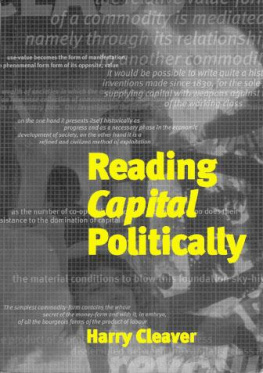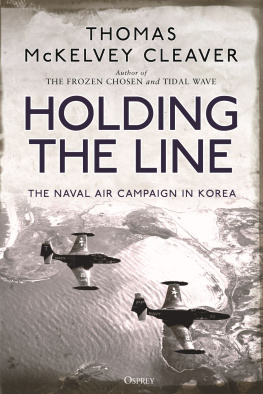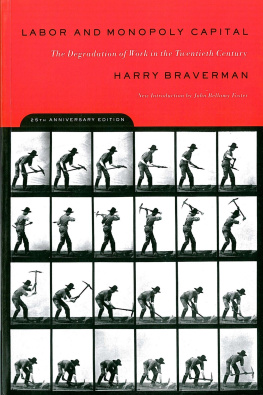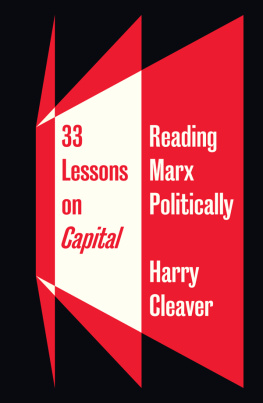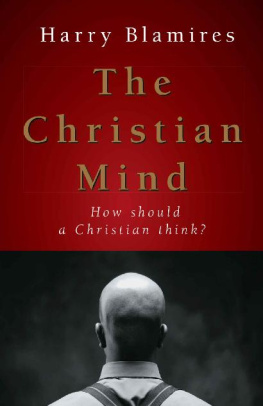Cleaver Harry - Reading Capital Politically
Here you can read online Cleaver Harry - Reading Capital Politically full text of the book (entire story) in english for free. Download pdf and epub, get meaning, cover and reviews about this ebook. City: New Delhi, year: 2012, publisher: Phoneme Publishers & Distributors, genre: Politics. Description of the work, (preface) as well as reviews are available. Best literature library LitArk.com created for fans of good reading and offers a wide selection of genres:
Romance novel
Science fiction
Adventure
Detective
Science
History
Home and family
Prose
Art
Politics
Computer
Non-fiction
Religion
Business
Children
Humor
Choose a favorite category and find really read worthwhile books. Enjoy immersion in the world of imagination, feel the emotions of the characters or learn something new for yourself, make an fascinating discovery.
- Book:Reading Capital Politically
- Author:
- Publisher:Phoneme Publishers & Distributors
- Genre:
- Year:2012
- City:New Delhi
- Rating:3 / 5
- Favourites:Add to favourites
- Your mark:
- 60
- 1
- 2
- 3
- 4
- 5
Reading Capital Politically: summary, description and annotation
We offer to read an annotation, description, summary or preface (depends on what the author of the book "Reading Capital Politically" wrote himself). If you haven't found the necessary information about the book — write in the comments, we will try to find it.
Reading Capital Politically — read online for free the complete book (whole text) full work
Below is the text of the book, divided by pages. System saving the place of the last page read, allows you to conveniently read the book "Reading Capital Politically" online for free, without having to search again every time where you left off. Put a bookmark, and you can go to the page where you finished reading at any time.
Font size:
Interval:
Bookmark:
Reading Capital Politically
By Harry Cleaver
Preface to the Mexican Edition of Reading Capital Politically
I am delighted that Reading Capital Politically is being translated into Spanish and published in Mexico. Mexico and Latin America have emerged as a central focus of both capitalist crisis and class struggle in this decade. What happens South of the United States is profoundly important for the American people. We are closely linked with Latin America not only by a capitalist integument of multinational corporations, international trade and financial institutions, and growing U.S. military intervention, but also by the international movement of working class migration. By making this book available in Latin America, the publishers are facilitating an international circulation of thought badly needed to improve our understanding of the character of the crisis, of the social conflicts that created it and of the new antagonisms to which it is giving birth.
The bulk of this book was written in 1975 and revised in 1977 and 1978. While I remain satisfied with the work as a whole, I would like to take this opportunity to reformulate some of the key points in the light of subsequent research. In addition, because this book was written primarily for an American audience, I would like to take a little space to indicate why what is written here may be of interest to Marxist intellectuals and workers in the Third World and how the theoretical points are still relevant outside of North America.
I
First, some comments on the general framework. My interest in Capital is strategic, not scholastic. For me Capital is still of interest because we can read it politically -as a weapon for workers to wield in the class struggle. Such a perspective is sorely needed today in the midst of crisis when the battle lines between the classes are changing so rapidly. Most of what passes for Marxist theory ignores working class struggle, or treats it as one subject among others. For too many Marxists there is only one historical subject: capital. Corporate power, not workers' power is what interests them. Unable to recognize the revolutionary subjectivity of the working class, too many Marxist theoretical efforts one-sidedly adopt the perspective and language of capital. A key aspect of the methodology set forth in this book is the focus on the two-sided character of all concepts and relations within capitalism two sides that correspond to the two antagonistic class positions. There is today a vital urgency to carry out this kind of analysis: to grasp the reality of capital and to interpret Marx's analysis of it in terms of class struggle.
This problem surfaces in the discussion of value. In the history of Marxism the concept of value has rarely been scrutinized very closely. Marxists speak of "value," and of "surplus value" as if everyone knows what they are, as givens in the discourse. They also speak of the "law of value" as a determining principle of capitalism (and in the view of some, of socialism) yet this too is rarely defined. None of these concepts are ever approached from the point of view of the working class.
When value is defined, it is usually in the terms of classical economics, within the framework of reference of Adam Smith or David Ricardo. Value the noun is taken as a referent to the quality a commodity has because of the labor it embodies. The labor theory of value is understood as a theory that a commodity has value if, and only if, it is the product of labor. It is labor that gives a commodity its value.
This theory is most often juxtaposed to the "subjective theory of value" of contemporary neoclassical microeconomic theory that says that the value of a thing lies in the eye of the beholder. Marxists reject this "subjective" view and prefer the "objectivity" of the labor theory objective because the labor embodied is independent of individual perspectives. It is simply the socially average amount of labor required to produce that thing.
Unfortunately for Marxists, intelligent bourgeois theorists won't let things lie at this point. Instead, they are likely to object that while it is true that the amount of labor required to produce a given commodity may be given, what does it mean to say that a commodity has value, or to speak of the value in a commodity, or to say that workers produce value? If the value a thing has is not its value to someone, then isn't this value metaphysical? Isn't it redundant to say that workers produce value when it is precisely their labor that constitutes the value? Doesn't this again mystify the meaning of value making it seem like some mystical quality imparted to an object through a worker's fingertips? These objections seem to me to be quite legitimate and appropriate given the usage often made by Marxists of Marx's concept of value.
In this book I have tried to clarify these issues by approaching the labor theory of value as a theory of the social relationships between workers and capital. In my reading of Capital , value is a term inherited from classical political economy that becomes for Marx a concept designating the central defining core of the class relationship in capitalism: labor. Simply stated, value designates work under capitalism.
Throughout the book I also treat value as "imposed" work. Why? We know from the study of primitive accumulation that Marx began in the Grundrisse and in Capital , that work was imposed on people by capital as it took over society. We know that capital reorganized society by seizing people's land and tools and forcing them to work for it. Labor is not just one activity among others in capitalist society. It is both the central activity around which capital organizes life, and it is a coerced activity. In Capital , Marx explains in bloody detail that "value theory" is central to the analysis of capitalist society because forced work is, and always has been, the heart of capitalist command. This is why you can not have Marx without value theory, as modern neoricardians sometimes suggest. Marx's whole analysis of capititalism places value, or imposed work, at the center of attention.
Marx's value theory is objective in the sense that production requires some given amount of labor that is the outcome of the two opposed subjectivities of the capitalist and working classes. But we can see one sense in which the labor theory of value is also a subjective theory. For capital, work has value in the sense that it is essential to its attempts to organize society. A commodity that requires a large amount of labor is more "valuable" to capital than one that requires little, because production of the first affords greater scope for putting people to work than the production of the second.
From the workers' point of view, of course, the situation is exactly reversed. Unlike capital, workers do not define their lives solely by work. They usually prefer, ceteris paribus, technologies that require the least necessary labor to produce a given product. The problem that capital intensive technology poses for workers lies not in the reduction of required work, but in the loss of jobs the primary way to obtain income within capitalism. In the post-craftsman age of mass production we can even say that for workers a commodity has more value the less labor it requires because the reduced labor sets their lives free for other activities.
To understand value in the way I have outlined calls for a redefinition of both capitalism and the working class. Instead of defining capitalism in terms of property ownership of the means of production, we can define it as a social system based on the imposition of work. We can also define it in terms of control over the means of production, but only if we recognize that the most important meaning of "control" in this context, is that of being able to coerce people to work. Similarly, instead of adopting the usual view of the working class as waged workers, we can define the working class as the class of people on whom capital is able to impose work. This includes not only the industrial proletariat that produces commodities, but also women and students who do the housework and school work of reproducing labor power, the unemployed of the reserve army who do the work of making the labor market function, and (as we will see) the peasantry.
Next pageFont size:
Interval:
Bookmark:
Similar books «Reading Capital Politically»
Look at similar books to Reading Capital Politically. We have selected literature similar in name and meaning in the hope of providing readers with more options to find new, interesting, not yet read works.
Discussion, reviews of the book Reading Capital Politically and just readers' own opinions. Leave your comments, write what you think about the work, its meaning or the main characters. Specify what exactly you liked and what you didn't like, and why you think so.

